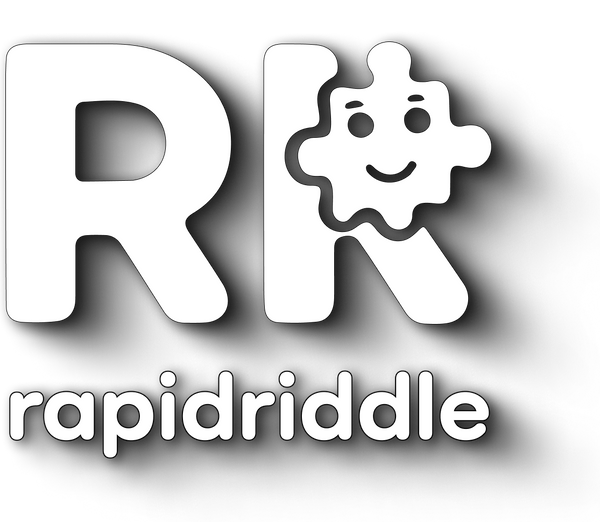Unlock Your Brain's Potential: The Science-Backed Benefits of Geometric Puzzles
Share
Unlock Your Brain's Potential: The Science-Backed Benefits of Geometric Puzzles
Welcome to the world of geometric puzzles — where fun meets brain growth. Whether you're buying for a curious toddler, a growing teen, or for yourself, our 2D and 3D puzzles offer benefits for every age.
Why Geometric Puzzles Are More Than Just Fun
Recent research shows that solving geometric puzzles is a powerful way to improve thinking skills at any age. From building strong spatial skills in early childhood to protecting the brain in older age, these challenges support healthy development and cognitive wellness.
The Universal Brain Benefits
- Enhance Spatial Reasoning: Train your brain to visualize, rotate, and mentally manipulate shapes — useful in math, engineering, and daily problem-solving.
- Boost Executive Function: Improve working memory, attention control, and flexible thinking to focus better and manage tasks.
- Promote Neuroplasticity: Build new neural pathways and strengthen existing ones through regular practice.
- Support Academic Success: Spatial puzzles are linked with better performance in STEM, verbal reasoning, and math.
Age-Specific Benefits That Last a Lifetime
Early Childhood (3–6 years): Building the Foundation
- Develops fine motor skills and hand–eye coordination
- Builds basic spatial understanding
- Improves pattern recognition and logical thinking
- Supports early math readiness
School Age (6–12 years): Academic Excellence
- Strengthens geometry and math basics
- Improves problem-solving strategies
- Builds abstract reasoning
- Enhances STEM learning
Adolescence (13–18 years): Brain Optimization
- Supports healthy brain development
- Strengthens executive function
- Improves spatial thinking
- Builds cognitive resilience
Adulthood (18–60 years): Peak Performance & Maintenance
- Maintains mental sharpness
- Enhances professional problem-solving
- Supports stress relief and mindfulness
- Provides transferable cognitive benefits
Older Adults (60+ years): Cognitive Protection
- Helps reduce dementia risk factors
- Improves spatial memory and executive function
- Supports independent living
- Offers engaging mental stimulation
Our Curated Collection: Science Meets Entertainment
We select 2D and 3D geometric puzzles that balance fun and proven cognitive value. From simple shape sorters to complex 3D mechanical puzzles, each item is chosen with research-backed benefits in mind.
Featured Categories
- Early Learning Geometric Puzzles: Foundation-building shapes and patterns
- Educational STEM Puzzles: Support school success
- Mind-Challenging 3D Puzzles: Advanced spatial development
- Senior-Friendly Brain Games: Cognitive wellness for aging
- Family Challenge Sets: Multi-generational fun
The Research-Backed Difference
Unlike ordinary toys, these puzzles are supported by neuroscience. Regular spatial puzzle play can:
- Improve standardized test performance
- Enhance STEM career skills
- Reduce risk of cognitive decline
- Support overall brain health
Start Your Cognitive Journey Today
Parents, students, and adults — find the right puzzle for your goals. Explore our age-specific collections and discover how solving geometric puzzles can unlock your potential.
Browse our collections and experience the difference that science-backed puzzle selection makes for your brain health and cognitive development.
Research References
- New 'Young Geographers': Children's Cognitive Development Wayfaring Through the City Replica Project
- The Use of Educational Puzzle Games for the Development of Cognitive Abilities of Children Aged 5–6 Years
- The Positive Effect of Educative Game Tools (Puzzle) on Cognitive Levels of Pre-School Children (4–5 Years)
- Efektivitas Penggunaan Alat Peraga Edukatif Puzzle Geometri
- System of Work on Logical and Mathematical Competence via Puzzle Games
- Improving Geometry Problem Solving Ability (fNIRS Study)
- Think3d!: Embodied Spatial Training
- Developing Deep Mathematical Thinking in Geometry (3–4-year-olds)
- Project Method & Recognition of Geometric Shapes
- Grey Matter Changes & Transitive Reasoning
- Spatial Activity Participation in Childhood and Adolescence
- From Controllers to Cognition
- Block Building, Board Games & Spatial Ability (fMRI)
- Transfer from Spatial Education to Verbal Reasoning
- Physical & Cognitive Training in Healthy Older Adults
- Jigsaw Puzzling & Cognitive Aging
- "CityQuest" Improves Spatial Memory in Older Adults
- VR-Based Puzzle Games in Post-Stroke Cognitive Impairment
- Cognitive Training & Attention in MCI and Mild Dementia
- Neuroplastic Potential & Cognitive Rehabilitation
- Training-Induced Neuroanatomical Plasticity in ADHD
- Environmental Enrichment & Hippocampal Neurogenesis
